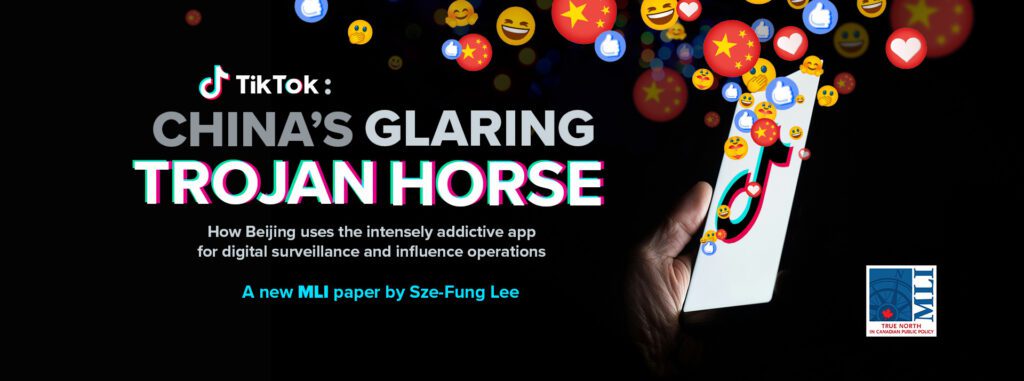This article originally appeared in the Western Standard.
By Daniel Dorman and Katherine Leung, March 31, 2025
The final report from Canada’s Public Inquiry into Foreign Interference (PIFI) is unfocused and contradictory.
Oddly, the report begins by discussing the need to maintain Canadians’ trust in our institutions for our democracy to function. This is true, of course, but it is a secondary issue compared to the question of whether Canada still has a robust democracy in which every person elected is there to serve the interests of their constituents — not the interests of a foreign state.
The report reads as a message to Canadians intended to reassure us that the threat isn’t as bad as some have claimed. It is as if Inquiry commissioner Justice Hogue is saying, “Foreign interference is a problem but the real problem is that you don’t trust your government.”
Mehmet Tohti, a leading human rights activist sanctioned by China and the Executive Director of Uyghur Rights Advocacy Project wrote on X, that the Commission’s “downplaying of the impact of hostile interference, infiltration, and influence in Canada… not only undermines the gravity of the threat but also sends a dangerous message — whether intentionally or not —t hat such activities can continue unchecked. A hostile regime will interpret this complacency as an indirect green light.”
Ironically, Canada’s efforts to deter foreign interference through a public inquiry may end up signalling our weakness and lack of resolve to our adversaries. It also likely does little to quell concerns from President Trump or his administration that Canada is taking China’s threat to the democratic world seriously.
The only way for Canada to counter foreign interference effectively is to signal to perpetrators that actions have consequences. So far, hostile regimes have gotten away with it scot-free — to the point that our public inquiry seemed to focus on Canadians’ trust in our democracy as the problem rather than the acts of those interfering in our democracy.
Canada needs to adopt a zero-tolerance approach to any acts of foreign interference, whether it be a direct attempt to change the outcomes of elections or the targeting of individuals or communities. It is essential that Canadians trust our democracy but that trust must be earned; trust will naturally follow from clearer action by the federal government to defend Canada from foreign states trying to undermine our elections, or intimidate and silence its citizens.
The way forward for Canada is to disincentivize perpetrators of foreign interference. We must raise the cost, and let our adversaries know that we regard this as a serious and unacceptable challenge to our sovereignty.
The internal inconsistencies between the reassuring tone of Justice Hogue’s report summary and the very concerning instances of foreign interference listed in the report itself are jarring.
Hogue is talking out of both sides of her mouth.
- Everything is fine, Canada, but during our last federal election China probably launched a disinformation campaign on Chinese language media in Canada against the leader of the Conservative party, reportedly because of that party’s stance on Beijing’s human rights abuses.
- Everything is fine, Canada, but former MP Kenny Chiu “was the target of false narratives related to his proposal to implement a foreign influence registry” (and when Mr. Chiu tried to respond to these narratives, he was shunned by Chinese language media).
- Everything is fine, Canada, but according to Canadian intelligence busloads of Chinese international students were allegedly coerced to vote for a particular candidate to sway a nomination campaign in the Don Valley North riding. (Don’t worry, at the time some civil servants and the prime minister didn’t think it was a big enough deal to release the information publicly.)
Sorry, Justice Hogue, we’re not convinced that the instances of foreign interference you list in the report (and those previously outlined in the 2024 report from the National Security and Intelligence Committee of Parliamentarians) were inconsequential to our democracy. Canada is vulnerable and the framing of your report doesn’t strengthen trust in Canada’s democratic institutions, it makes us feel like no one is taking the defence of our sovereignty seriously.
Daniel Dorman is the Managing Editor and Director of Operations at the Macdonald-Laurier Institute.
Katherine Leung is a Policy Advisor at Hong Kong Watch Canada.
The author of this piece has worked independently and is solely responsible for the views presented here. The opinions are not necessarily those of the Macdonald-Laurier Institute, its directors or supporters. The Macdonald-Laurier Institute is non-partisan and neither endorses nor supports candidates or political parties. We encourage our senior fellows to comment on public policy issues, including during election campaigns, but the publication of such expert commentary should not be confused with the institute taking a position for or against any party or candidate.







